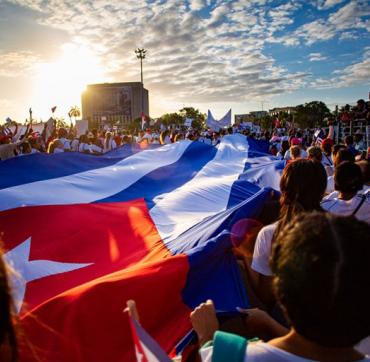IOC presidential candidate Watanabe pledges Olympic renewal
especiales

Morinari Watanabe, one of seven candidates in the race for the presidency of the International Olympic Committee (IOC), has stressed the need to modernise the Olympic Games to remain relevant as new sports emerge. The Olympic Games must change to adapt to the new times," Watanabe said in a recent interview, outlining his vision if elected.
Currently in his second term as the first Asian president of the International Gymnastics Federation and a member of the IOC, Watanabe advocates an Olympic Games that combines traditional sports with modern urban sports and the growing phenomenon of e-sports. "It's necessary to create a new Olympics," he declared, stressing the importance of reflecting the changing landscape of global sport.
Watanabe also called for a change in the IOC's decision-making process, which he described as too centralised. "The IOC should obtain more opinions from people in the field," he suggested, noting that decisions are currently made by the President and then approved by the Executive Board and IOC Sessions. "There are 206 national Olympic committees in the world," Watanabe pointed out, underlining the need for a more inclusive and bottom-up approach.
With his campaign focused on the future of sport and the Olympic Games, Watanabe stressed the importance of connecting with young athletes and future generations. "There are things that must be done for children and the athletes who perform in the Olympic Games," he said.
As the first Japanese candidate for the IOC presidency, he believes his potential election would symbolise the organisation's embrace of diversity. "The value of the IOC will be determined by whether its members want diversity or prefer to make a conservative choice," he said.
Although Watanabe has travelled extensively to engage with global sporting communities, he refrained from commenting on his rivals, including IOC vice-president Juan Antonio Samaranch Jr, World Athletics president Sebastian Coe and other prominent figures in the race. "You can't make improvements if you don't see what's happening in the field," Watanabe said, emphasising the importance of local experience.
When asked about the possibility of bringing the Olympics back to Japan if elected, Watanabe played down expectations "There won’t be another Games in Japan for the time being," he said, explaining that other strong candidates for host cities should be given the opportunity first.
However, Watanabe's candidacy depends on his success in the upcoming FIG presidential election in October. If he loses, he will no longer qualify as an IOC member and would therefore be ineligible to run for the presidency "I'm working hard so that such a thing doesn't happen," he said. "I must win the FIG presidential election."
Despite the challenges ahead, Watanabe remains focused on his broader goal of making the Olympics "loved by people" around the world. "I have travelled to more than 160 countries over the past eight years and discussed with their sports personnel what the Olympics should be and how sport can contribute to society," he said, adding that he plans to submit his manifesto by the end of December.
"I might just get a few votes, or turn out to be the lucky one," he concluded, optimistic but realistic about the upcoming election. If successful, Watanabe would become the first Asian president of the IOC, a role historically held by Europeans and Americans. The election is scheduled to take place at the 143rd IOC Session in Greece in March 2025.














Add new comment